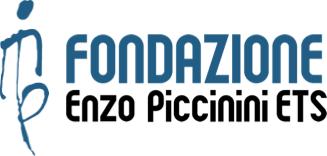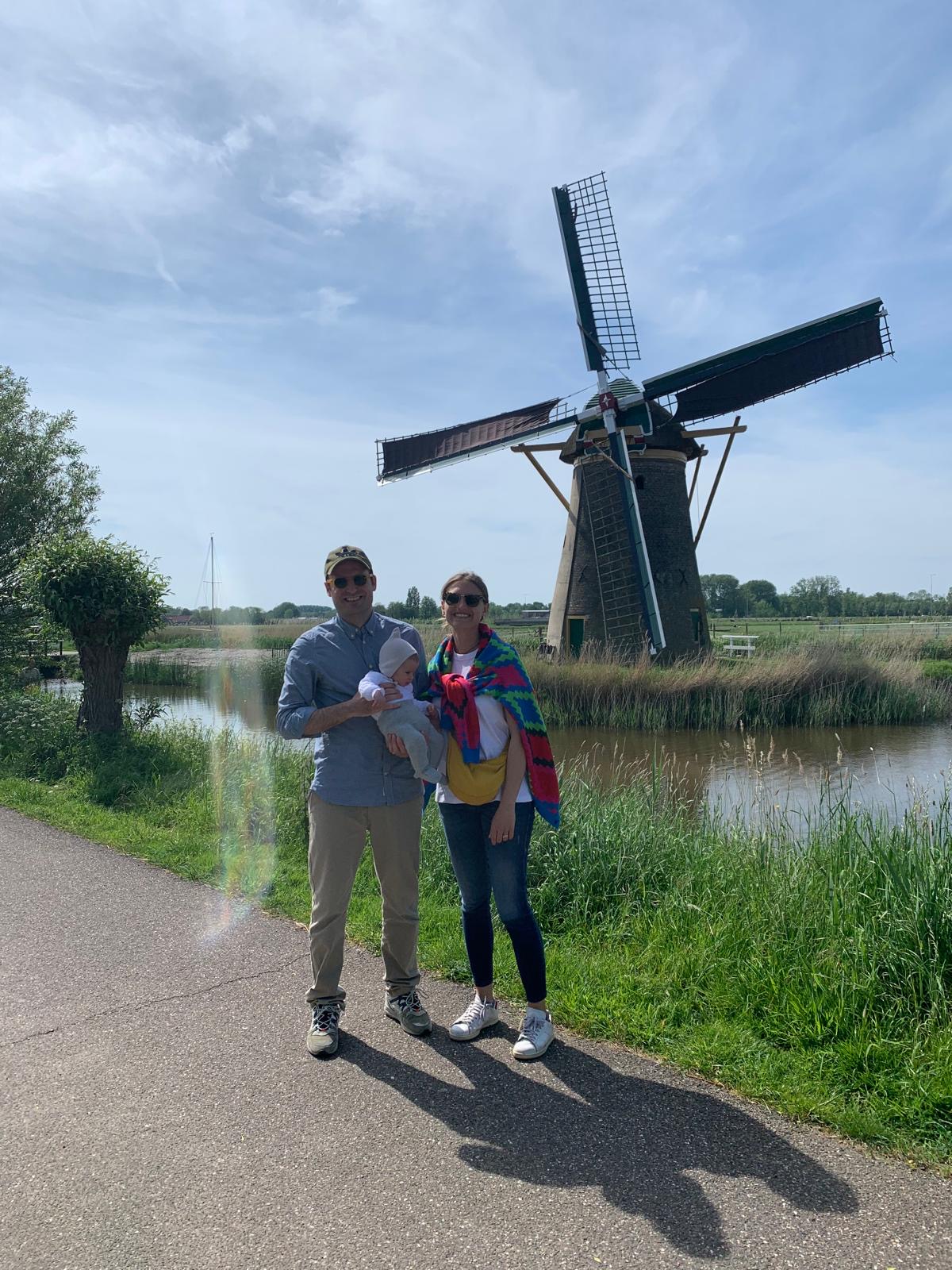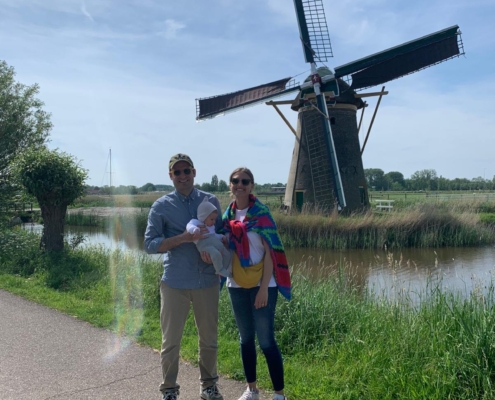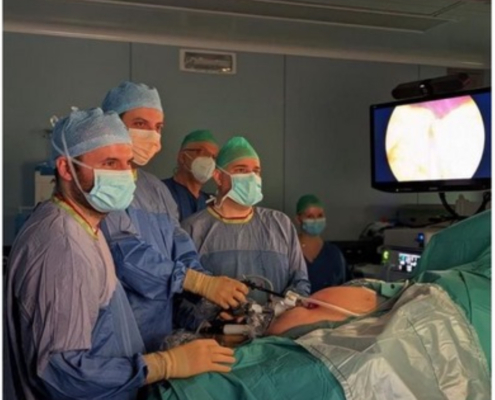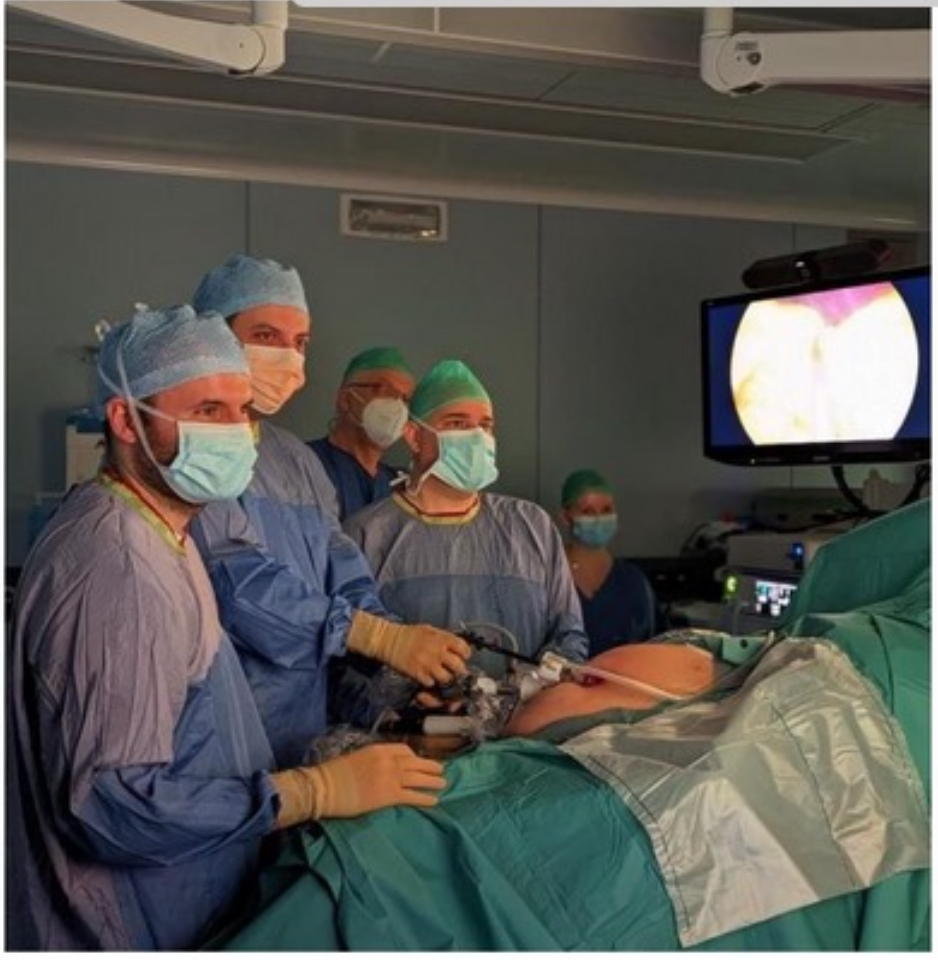Four months between Delft and Leiden
My name is Giacomo and I am in my fifth year of specialization in general surgery at La Sapienza University of Rome. During my training, I had the opportunity to spend a period at the general surgery department of the Ravenna hospital, directed by Prof. Ugolini. This experience was a fundamental moment for my professional growth.
Observing the work of Prof. Ugolini, Dr. Montroni, Dr. Zattoni, Dr. Ghignone, Dr. Taffurelli and all the other doctors I met in Ravenna strengthened in me the desire to become a surgeon like them. I noticed two common characteristics in all of them: the ability to offer care based on the best scientific evidence available, accompanied by caring attention to each patient, treated as if they were a loved one.
Thanks to the professional relationships that Prof. Ugolini has established and cultivated with Prof. Tollenaar (director of the Dutch Institute Cancer Audit and Professor of Surgery at Leiden University) and Dr. Dekker (director of the Colorectal Cancer Audit), as well as the support of the Enzo Piccinini Foundation, I had the opportunity to spend four months in the Netherlands together with my wife Giulia and my daughter Margherita.
During this period, I divided my time between the General Surgery Department of the Reiner de Graaf Hospital in Delft and the Dutch Institute Cancer Audit (DICA) in Leiden. The Delft Hospital, the oldest in the Netherlands, is renowned for its excellent care, while DICA is a cutting-edge research center, where PhD students from all over the Netherlands analyze millions of data from national registries on different diseases on a daily basis.
In Delft, I had the opportunity to follow Dr. Dekker, assisting in numerous minimally invasive surgeries, both robotic and laparoscopic, on colorectal and esophageal diseases, while also learning about pre- and post-operative management of patients. In parallel, at DICA, I worked on a research project based on data from the Dutch Colorectal Surgical Audit (DCRA), a program born in 2009 and created by a group of Dutch surgeons to evaluate the effectiveness of colorectal surgery.
Thanks to this system, all Dutch hospitals systematically collect data on operated patients, on elements such as demographic characteristics, percentage of minimally invasive interventions, length of hospital stay, complication rate and mortality. The information is entered into a centralized database that allows anonymous comparison between hospitals, providing each center with feedback (Benchmarking feedback) on its results compared to those of other hospitals. This approach has led to a significant improvement in the quality of care in the Netherlands, reducing mortality, post-operative complications and variability in outcomes between different facilities.
A particularly formative moment of my experience was the weekly Wednesday meeting with Prof. Tollenaar and Dr. Dekker. The attention with which they analyse every detail made me understand that every single element represents a potential opportunity for improvement. The data is never used to draw up rankings between hospitals, but to identify how to improve every aspect of care, with the aim of improving outcomes for all Dutch patients. I have learned the importance of not ignoring anything, but of questioning every data with a clear purpose, as even unexpected results can offer learning opportunities.
I am extremely grateful to the Fondazione Piccinini for making this experience possible. In the Netherlands I have learned a lot, both professionally and personally, and I feel the responsibility to continue to commit myself with passion and dedication to guarantee the best care for the patients I will take care of.
Giacomo Salina
